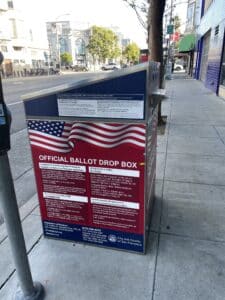In California, people are protected against discrimination and harassment on the basis of actual or perceived disability. The San Francisco disability discrimination attorneys at the Dolan Law Firm have represented numerous disabled people in achieving access and/or compensation when they have been treated unlawfully.
Have You Been Discriminated Against Because of a Disability?
The Dolan Law Firm employees attorneys who themselves suffer from disabilities and take disability discrimination seriously. We handle a variety of disability discrimination and employment law cases, including employment discrimination and housing discrimination. Call 415-636-8160 to speak with a disability discrimination attorney today.
What Is a Disability Covered Under the Law?
In California, you are considered disabled if you have a condition that limits one or more major life activities, i.e. the condition or disability limits (makes more difficult) your ability to engage in a major life activity such as breathing, seeing, walking, caring for yourself, working, socializing, reading, eating, digesting, hearing, speaking, etc. Disabilities can be physical or mental such as developmental disorders, organic brain syndrome, emotional or mental illness, or specific learning disabilities. They can be readily apparent such as being wheelchair-bound, using a cane, being disfigured or having an amputated body part, or they can be subtle such as heart problems, breathing difficulties, depression, anxiety, gastrointestinal difficulties, sleep apnea, etc.
To be considered a disabling condition, a disability or limitation must be or be perceived as longstanding or permanent. Temporary disabilities may provide for leave under the California Family Rights Act or Family and Medical Leave Act.
What Are Your Legal Rights?
A disabled person who is otherwise qualified (has the education, training, etc., required by the position) to perform the essential job functions, with or without accommodation, must be treated equally with all other applicants and/or employees.
Essential job functions are those core job functions that the position requires. For example, a firefighter’s essential job functions include being able to run, lift and carry. Likewise, pilots require visual ability as a bona fide occupational qualification. A person whose disability keeps him or her from possessing these abilities is not otherwise qualified.
An accommodation is some tool, device, equipment, assistance and/or modification of a nonessential job function that makes it possible, or easier, for a disabled person to perform essential job functions. Examples include larger computer monitors or electronic or manual readers for sight-impaired people, TTD devices for deaf people, sign language interpreters, modification to facilities and workstations for wheelchair access, flexible schedules, telecommute agreements, use of animal assistants, restructuring of nonessential job functions, allowing time for medical appointments, etc.
Employer Responsibilities Toward Disabled Individuals
Employers have an obligation to provide reasonable accommodations. They do not have to provide the accommodation preferred by an employee and they only have to provide accommodations that do not create an undue hardship on the economics and/or workplace functioning of the employer. Whether an accommodation is reasonable or places an undue hardship on the employer takes into account the size and economic capacity of the employer as well as the cost, expense and disruption associated with the accommodation.
The law requires that once an employer is made aware of an employee’s disability and/or any workplace difficulties associated with a disability, the employer and the employee have a duty to engage in a good faith interactive process to discuss potential accommodations. An employer who fails to engage in a good faith interactive process is in violation of the law and may be subject to damages for its violation of the law.
An employee also has a duty to engage in the good faith accommodation process. To that end, an employer can request medical certification of the disability and may seek to interact with the employee’s medical providers as part of the reasonable accommodation process to determine what would be a suitable accommodation. Employees who fail to engage in a good faith interactive process and who lose their job as a result have no right to recovery.
If there is a breakdown in the interactive process leading to discharge or demotion, the courts look to see who was responsible for the breakdown. Therefore, in any situation where you are interacting as part of an accommodations process, it is important to document, in writing, your participation. That documentation should be copied to your supervisor or HR.
Employers cannot discriminate against current or potential employees on the basis of a disability. They may not ask as part of a pre-employment questionnaire if you are disabled. An employer who has offered you a position may then inquire if you require any accommodations.
An employer may decline to offer you a job or remove you from a job if your disability creates a legitimate health risk to others. For example, it has been considered lawful to preclude epileptics who experience seizures from operating buses, trains, etc., because of legitimate health risks. These risks, however, must be legitimate and not merely speculative.
Alcoholism and Drug Addiction Under Disability Law
Alcoholism and drug addiction are recognized disabilities under the law. However, use of alcohol or drugs in the workplace, i.e., being drunk or under the influence of drugs, or missing work or being late because of a hangover/binge is not considered a reasonable accommodation and may subject you to immediate termination. On the other hand, treatment for alcoholism or drug addiction may be considered a reasonable accommodation.
The key is to seek help before you are terminated for the behavior. An employer may not discriminate against or harass someone because of their status as a recovering alcoholic/drug addict. Therefore, an employer learning that an employee is going to AA or NA meetings may not demote, terminate or otherwise take adverse employment action because of the employee’s status as a recovering alcoholic/addict. Indeed, permission to go to meetings/therapy may be a reasonable accommodation.
After an Accommodation Is Requested
If you relate to an employer that you are disabled, you are entitled to a reasonable expectation that your employer will keep that medical information confidential and distribute it only to people who need to engage in a good faith interaction or otherwise provide an accommodation.
It is unlawful to retaliate against an employee who requests an accommodation. If you feel that you have been retaliated against, document it in writing and send a complaint to your management and/or human resources.
Can You Quit if Conditions Are Intolerable?
The law recognizes that sometimes conditions get so bad that people have no reasonable alternative but to quit their employment rather than endure continued unlawful conduct. An employee cannot just quit and sue because of one simple incident. The conditions must be of such severity and frequency that a reasonable person would think that there is no alternative and that he or she was, in effect, constructively terminated. You should first report the conditions through your company’s complaint procedure, where possible, before you quit or your rights to recover damages may be reduced.
What to Do if You Have Been Treated Unlawfully
Many companies have policies regarding anti-discrimination and harassment in their company handbooks. Likewise, they may require that you follow a certain channel of communication in requesting an accommodation and/or reporting harassment, discrimination and/or retaliation. You should follow these procedures and document your actions in writing. Failure to follow these procedures may lead to a denial of your legal right to recover certain damages like punitive damages. You have a limited period of time to act to protect your rights.
Contact Our Disability Discrimination Lawyers Today
If you believe that you are being discriminated against or harassed because of your disability, email the Dolan Law Firm or call 415-636-8160 for a free case evaluation with one of our San Francisco disability discrimination attorneys today.
People who have suffered unlawful conduct in California in violation of their rights under the Fair Employment and Housing Act (such as discrimination and/or harassment based on membership in a protected classification) must file a complaint with the Department of Fair Employment and Housing (DFEH) generally within one year of the conduct (there are limited exceptions in some cases) or they may lose their right to pursue legal action. Forms and information on the DFEH complaint process can be found at http://www.dfeh.ca.gov













